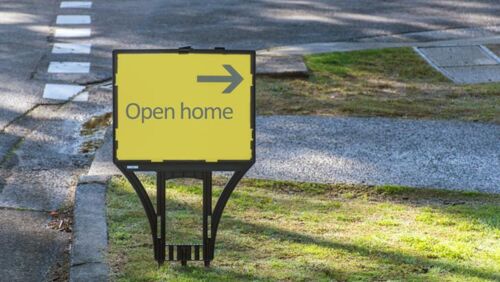Why you should be careful gifting kids a home deposit
By Effie Zahos
As many as one in three parents are gifting kids a home deposit. Some of these parents, according mortgage broker Smartline, lie to lenders about whether or not the money given is a loan rather than a gift.
As Joe Sirianni, Smartline's executive director, says: "It's dangerous and dishonest to advise a lender that funds provided to your child are a gift if in fact you want that money repaid at some stage."
The question here is: why are parents lying? The answer unfortunately comes down to them innocently wanting to help their children get finance approval. "It's in order to get around the bank's lending criteria to secure the loan," Sirianni says.
When a potential home buyer has less than a 20% deposit (this is the amount needed to avoid expensive lenders mortgage insurance), most lenders would accept a gift from a family member so long as the borrower can demonstrate that they are contributing at least 5% as genuine savings.
The paperwork required regarding the gift differs between lenders but in most cases parents need to put something in writing saying that their money is a gift and they do not expect it to be repaid. By confirming this, your child's borrowing capacity is increased as the lender does not have to account for a loan that needs to be repaid to you.
But be careful what you say because gifting can come back to bite you. Once you put something in writing it is hard to turn that around.
As Sirriani points out, the most vulnerable parents are those giving money to a child who is in, or is entering, a de facto relationship.
As an example, let's say you give your son $50,000 to help him buy a home and he puts in $20,000 of his own money.
He moves into it with his girlfriend. Both share the mortgage repayments.
The problem is that once they've been in a relationship for a reasonable period of time, they are deemed to have shared assets. If the relationship were to end, this would threaten the equity that your son put in at the outset, along with the funds you gave him.
Gifting kids a home deposit requires you to sign a statutory declaration, so it's hard to turn around later and say it wasn't a gift.
According to Melbourne Smartline broker Grant Matthews, what needs to be set up here is an exit plan. "The exit strategy could be an agreement where upon separation and sale of the asset your son's initial deposit and your gift would be repaid. As both would be equally meeting the ongoing loan repayments, the remaining profits would be shared."
Exit strategies can prevent legal and emotional costs. Other strategies that should be implemented if you are buying property with family or friends include knowing the difference between joint tenants and tenants in common and ensuring you stipulate joint signatures on redraw facilities and/or offset accounts.
Essentially there are two ways to own a property with others. You can be joint tenants, which means you own the property in equal shares and if one joint tenant dies the other automatically gets their share, even if the will states otherwise. Tenants in common can own the property in any proportion they like. If one dies, their share is passed on according to their will.
As for joint signatures on redraw and offset facilities, not all lenders offer this but I would suggest you find one that does.
I've seen some ugly things happen when relationships break down, such as the fiance who cleared $50,000 in extra repayments in the couple's home loan redraw facility the night before she left her partner.
How to help them
Go Guarantor: Protect yourself by agreeing to a limited guarantee. This way you're only responsible for part of the loan. Ask the lender if you can be released from the guarantee once your child has reduced their loan to a valuation ratio of 80% or less.
Buy the property together: This option allows you to use the equity in your home as security, with the cost of the loan shared between you and your child.
Buy an investment yourself and rent it to your child: Technically this doesn't help them buy their own home but if you're in a good financial position you may be able to subsidies the rent so they can save for their own home.
Family loan: This allows parents to assist with security and or serviceability.
Parent-to-child loans: Together with the lender, you formally lend money to your child and have a stake in the property. You receive principal-and-interest repayments on the amount that you lend them.
Get stories like this in our newsletters.



